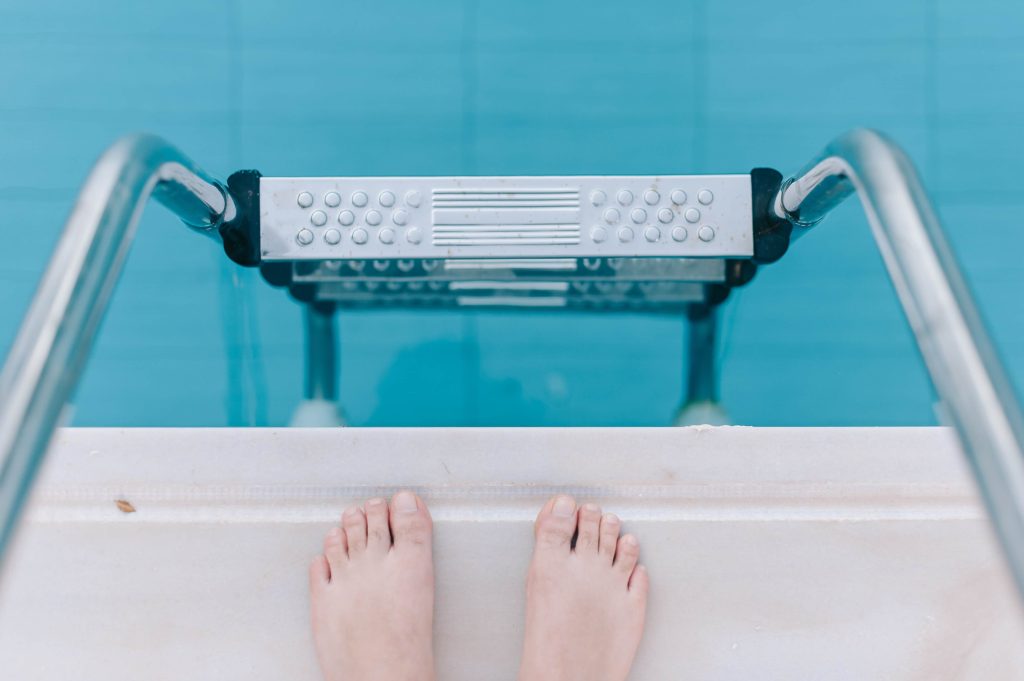Feeling stressed and anxious? What if the solution is right in front of you, literally in the water? Water therapy, also known as hydrotherapy or aquatic therapy, can be a powerful tool to calm your mind and ease your body.
The various techniques and equipment used in this arena may directly or indirectly positively influence your well-being and mood. Aquatic therapy may range but is not limited to floating, exercising, or simply soaking in a warm pool, and much more.
Let’s explore how this centuries-old practice can help you find relief from stress and anxiety.
What is Water Therapy?
Water therapy, also called hydrotherapy or aquatic therapy, uses water to help relieve pain and treat various health conditions. By taking advantage of the natural properties of water, like temperature and pressure, it can improve circulation and reduce symptoms of different ailments. This therapeutic practice has been around for centuries and offers numerous benefits for both physical and mental health.
How Water Therapy Can Help Reduce Stress and Anxiety
The following are the different ways through which aquatic therapy works in alleviating the symptoms of stress and anxiety:
Helps Reduce Tension Headaches
Stress often leads to muscle tension, which can trigger headaches. Moreover, stress affects blood pressure and heart rate which can contribute to discomfort. Water therapy can help alleviate these symptoms by reducing muscle tightness and improving blood circulation.
Improves Your Sleep
Exercising in water can promote better sleep. The coolness of the water helps lower your body temperature which will make you feel more relaxed and sleepy. Water therapy also massages your muscles and joints, further helping you unwind. Plus, the release of endorphins during exercise can improve your mood and reduce stress.
Improves Your Mood And Emotional Well-being
Physical activity in water releases endorphins, natural mood elevators that also act as pain relievers. Regular water therapy can help reduce stress and anxiety, improve your mood, and enhance overall emotional well-being.
Forges mind-body Connection
Water therapy fosters a stronger connection between your mind and body. The rhythmic movements and the soothing environment help you focus on the present moment. This helps you forget worrying about the past and the future which helps the mind work in normal and relaxed conditions.
Social Activity and Bonding
Water therapy can also be a social activity and offers a chance to connect with others. This makes your pool therapy exercises more fun within a supportive environment. This sense of comradeship may also help relax the mind and forget about other stressful matters for the time being.
Mindfulness and Breathing
Water activities can encourage mindfulness and deep breathing. This practice is famously used for anger control, stress reduction, and emotional well-being by therapists.
Types of Aquatic Therapies to Reduce Stress and Anxiety
Here are the types of aquatic therapies that can help minimize stress and anxiety:
- Warm-water Baths: Soaking in warm water helps relax muscles and calm the nervous system.
- Whirlpool Baths/Spas: The water jets provide a gentle massage, enhancing relaxation.
- Contrast Therapy: Alternating between hot and cold water helps boost circulation and reduce stress.
- Steam Baths/Saunas: The heat and humidity can help relieve muscle tension and improve circulation.
- Cold Water Baths: Soaking in cold water can reduce inflammation, stimulate circulation, and promote overall healing. It can also increase energy and improve mental clarity.
Other Aquatic Techniques
- Ai Chi: A gentle aquatic exercise inspired by Tai Chi and Qigong, focusing on relaxation and breathing.
- Watsu: A soothing form of aquatic massage and stretching performed in warm water.
- Halliwick Concept: A method designed to improve balance and stability, especially for people with disabilities.
- Water Jogging: Running in the water with a flotation device, promotes balance, and cardiovascular fitness.
Reduce Your Stress and Anxiety Through Pool Therapy Equipment
You can unwind after a long stressful day at your workplace or do other housefull chores by installing aquatic therapy equipment. Working on water therapy tools can relieve your mind and soul from worldly affairs and give your brain a rejuvenating push.
Here are the different equipment for pool therapy you can use to refresh your mind:
Aquatic Bicycles
Aqua cycling, or underwater spinning, can be a beneficial tool for stress management due to its low-impact nature. When you start spinning the pedals of the aqua bike, your brain releases endorphins, a stress-reducing hormone, during the exercise. This leads to improved mood and reduced anxiety.
Underwater Treadmills
Underwater treadmills provide a gentle, low-impact workout while supporting your body in the water. The calming environment and rhythmic movements help lower stress levels, promote relaxation, and reduce anxiety.
Water Jets/Whirlpool Therapy
Water jets or whirlpools provide a soothing massage with gentle streams of water, helping to relax tense muscles and ease physical discomfort. The calming pressure of the water on the body reduces stress and anxiety, promoting overall relaxation and mental clarity.
Floatation Therapy
Floatation therapy involves lying in warm water where your body is fully supported, creating a sense of weightlessness. This feeling of complete relaxation helps to reduce physical tension and calms the mind.
Aqua Yoga Equipment
Aqua yoga involves performing yoga poses in the water. It uses flotation devices like noodles or foam blocks to support the body. The water’s buoyancy makes it easier to hold positions without straining. This allows you to experience deeper relaxation and stress relief.
Aqua Stretching Tools
Aqua stretching equipment, such as resistance bands or floatation belts, can be used to gently stretch muscles in the water. The resistance provided by the water helps improve flexibility, release muscle tension, and reduce stress.
Safety Considerations for Aquatic Therapy
While water therapy is generally safe, it’s important to be aware of potential risks. These risks may include hypothermia or overheating in the case of individuals with certain health conditions.
It’s always a good idea to consult a healthcare professional before starting any new exercise program even if it is water therapy. If you have any underlying health conditions, be sure to inform your therapist or instructor.
Frequently Asked Questions
How often should you do aquatic therapy?
The frequency of aquatic therapy sessions is highly individualized and depends on your specific condition, goals, and how you progress, but it typically ranges from 1 to 3 times per week, often in conjunction with land-based therapy.
How long should I stay in the aquatic therapy pool?
Aquatic therapy sessions typically last between 30 and 60 minutes. However, the duration can vary based on your individual needs and goals. Always stay in close touch with your therapist regarding the duration of the pool therapy sessions.
Is cold water therapy good for your mental health?
Cold water therapy, such as cold showers or jumping into cold water, can help improve your mental health by making you feel happier and more awake. The sudden cold water causes your body to release feel-good chemicals called endorphins and improves blood flow, which can help lift your mood and ease feelings of depression and anxiety.
It also helps build your ability to handle stress and improves focus. While everyone reacts differently, adding cold water therapy to your routine can give you a refreshing mental boost and work well alongside other treatments. Always talk to a healthcare professional before trying new therapies.
Does aqua therapy really work?
Yes, aqua therapy helps attain personalized fitness goals or recover from any injury or trauma. According to John Hopkins Medicine, aquatic exercises can help with early weight bearing, balance training, and flexibility. It can also alleviate the symptoms of anxiety and stress.
Parting Words
Water therapy is a simple and effective way to reduce stress and anxiety. By using the calming effects of water, you can relax your body and mind. Whether you’re doing exercises in the pool or enjoying a float, the benefits are clear.
Incorporating water therapy into your routine can help you feel better, both mentally and physically. Give it a try and let the water work its magic on you.


